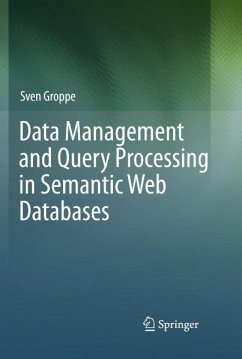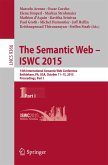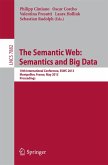In his book, Groppe details various aspects of high-performance Semantic Web data management and query processing. His presentation fills the gap between Semantic Web and database books, which either fail to take into account the performance issues of large-scale data management or fail to exploit the special properties of Semantic Web data models and queries. After a general introduction to the relevant Semantic Web standards, he presents specialized indexing and sorting algorithms, adapted approaches for logical and physical query optimization, optimization possibilities when using the parallel database technologies of today's multicore processors, and visual and embedded query languages.
Groppe primarily targets researchers, students, and developers of large-scale Semantic Web applications. On the complementary book webpage readers will find additional material, such as an online demonstration of a query engine, and exercises, and their solutions, that challenge their comprehension of the topics presented.
Dieser Download kann aus rechtlichen Gründen nur mit Rechnungsadresse in A, B, BG, CY, CZ, D, DK, EW, E, FIN, F, GR, HR, H, IRL, I, LT, L, LR, M, NL, PL, P, R, S, SLO, SK ausgeliefert werden.
Hinweis: Dieser Artikel kann nur an eine deutsche Lieferadresse ausgeliefert werden.









